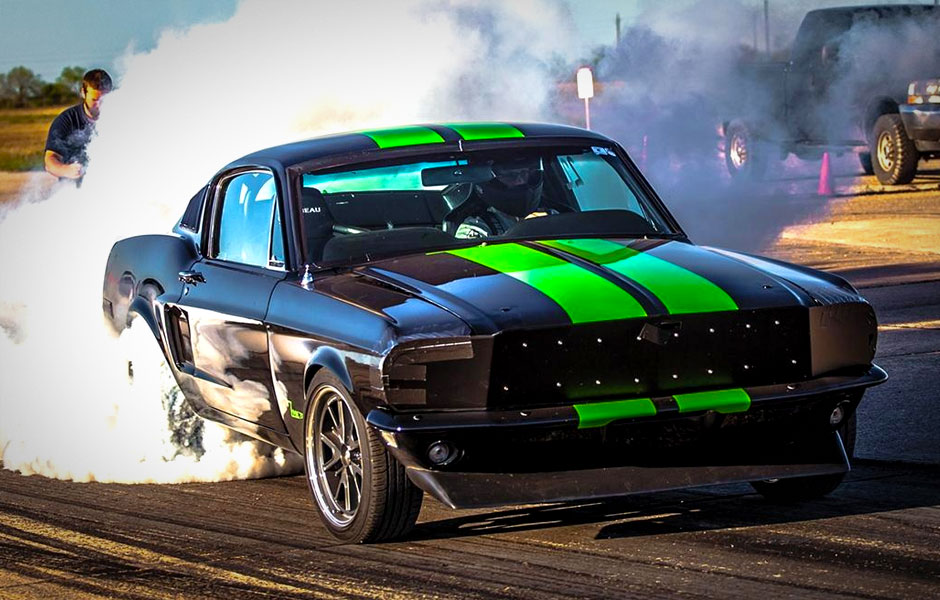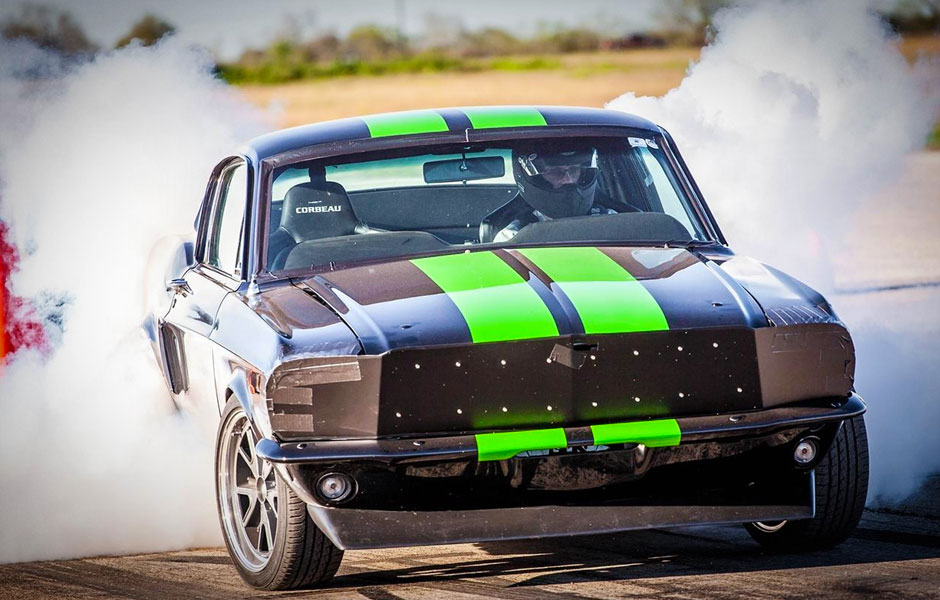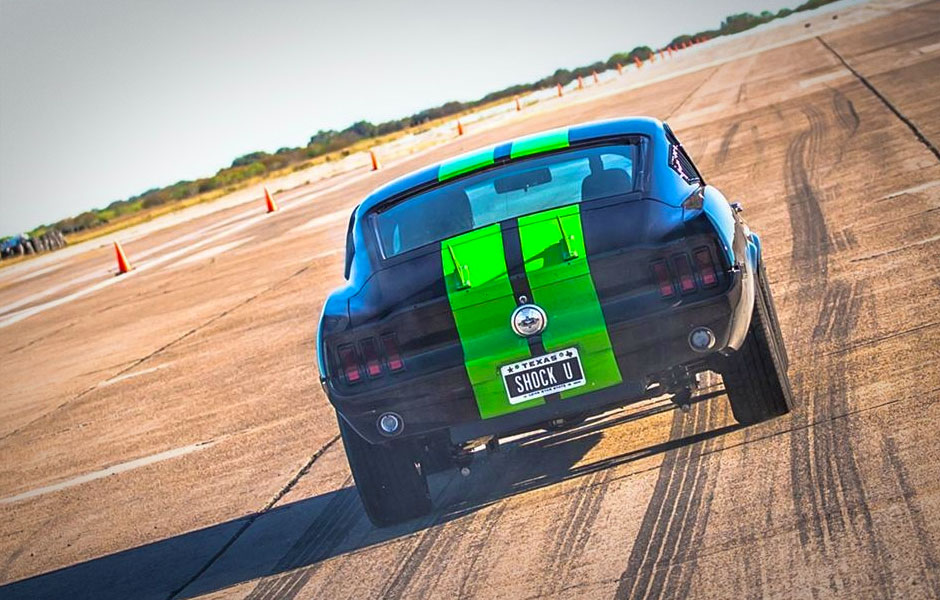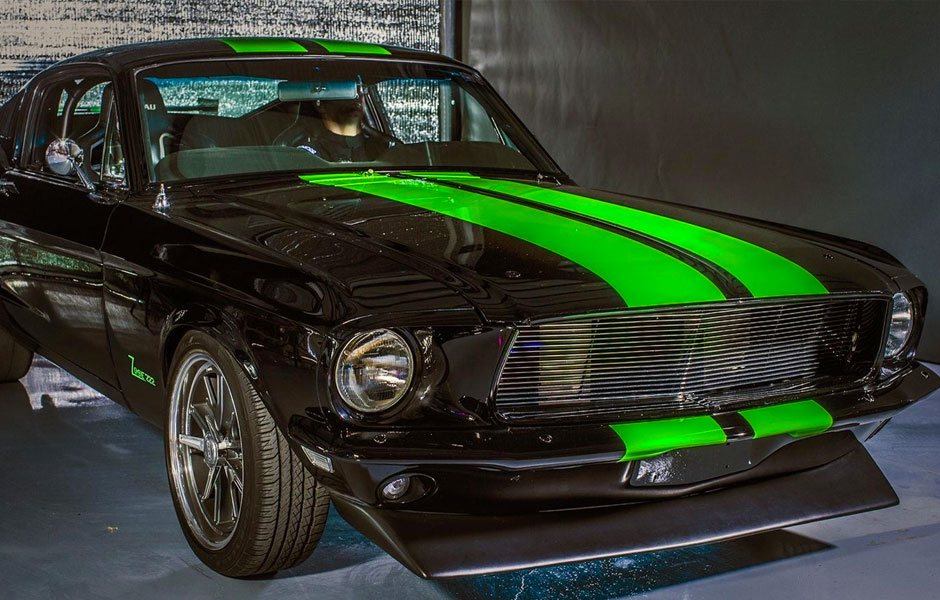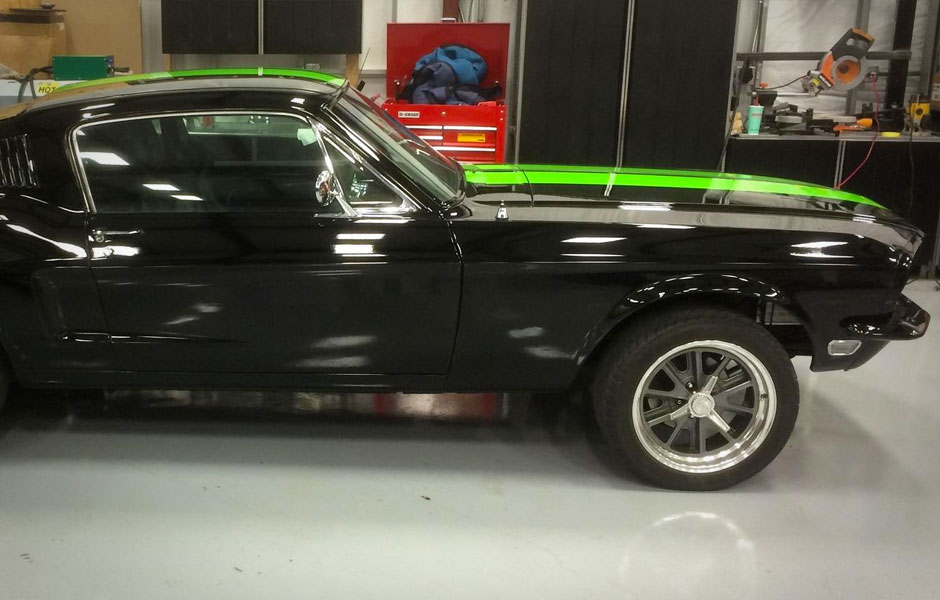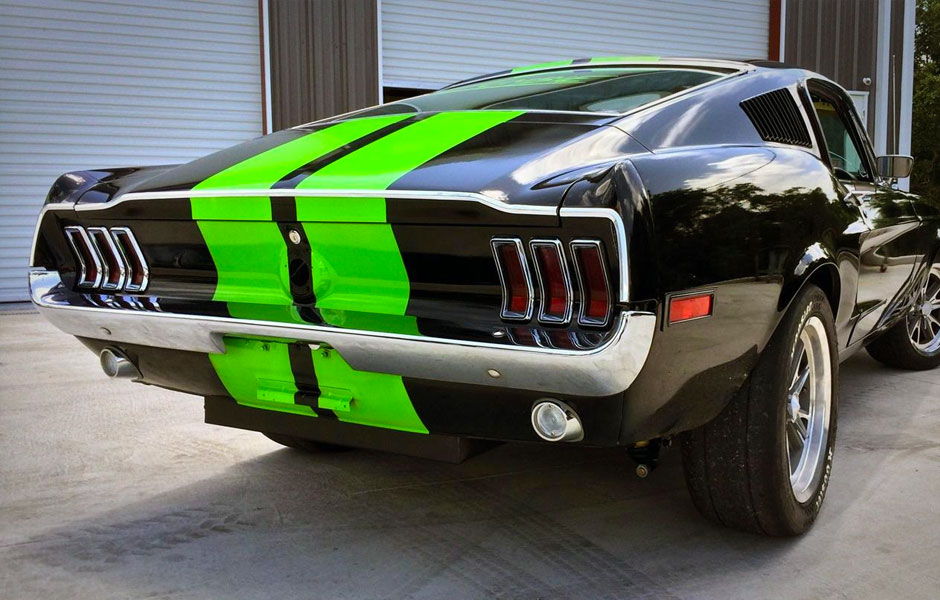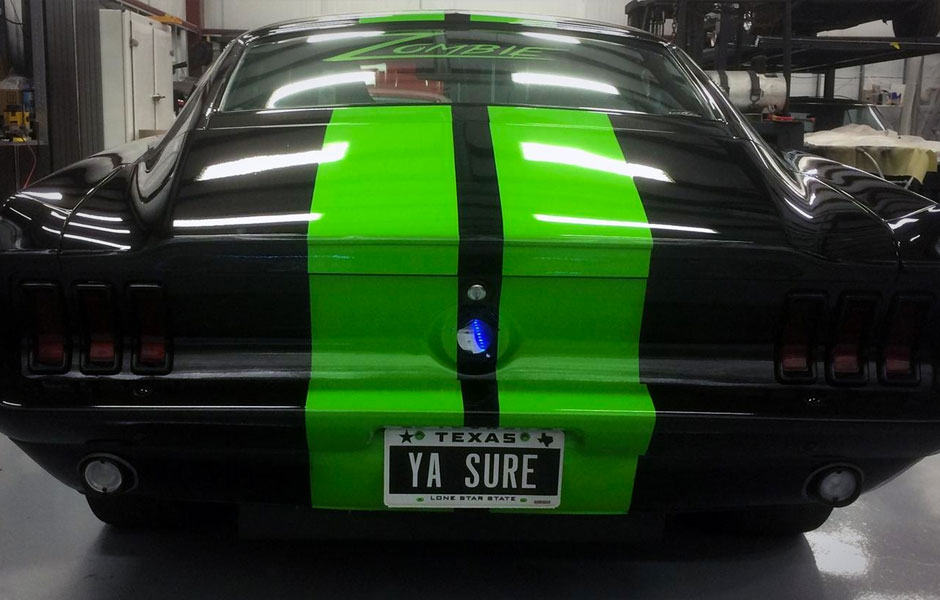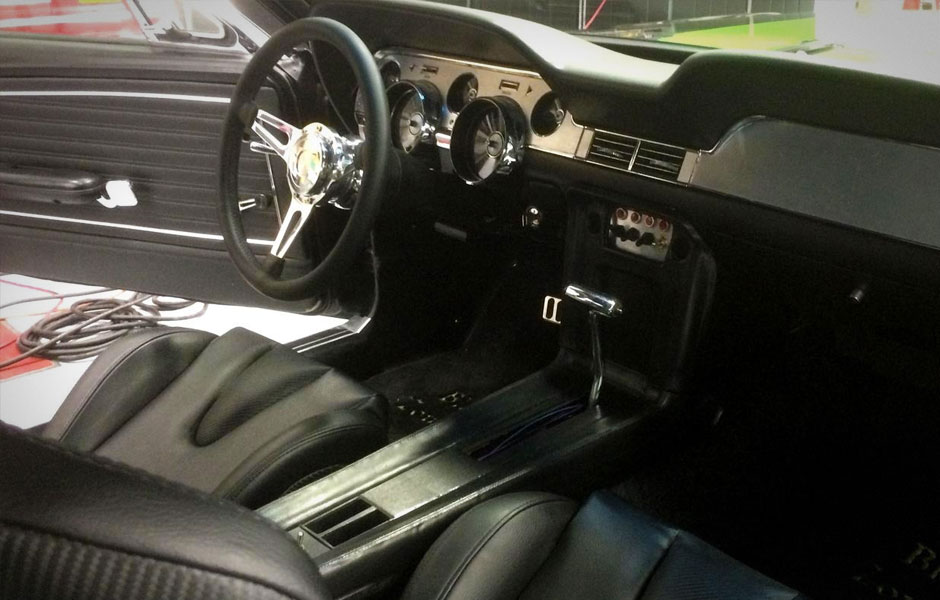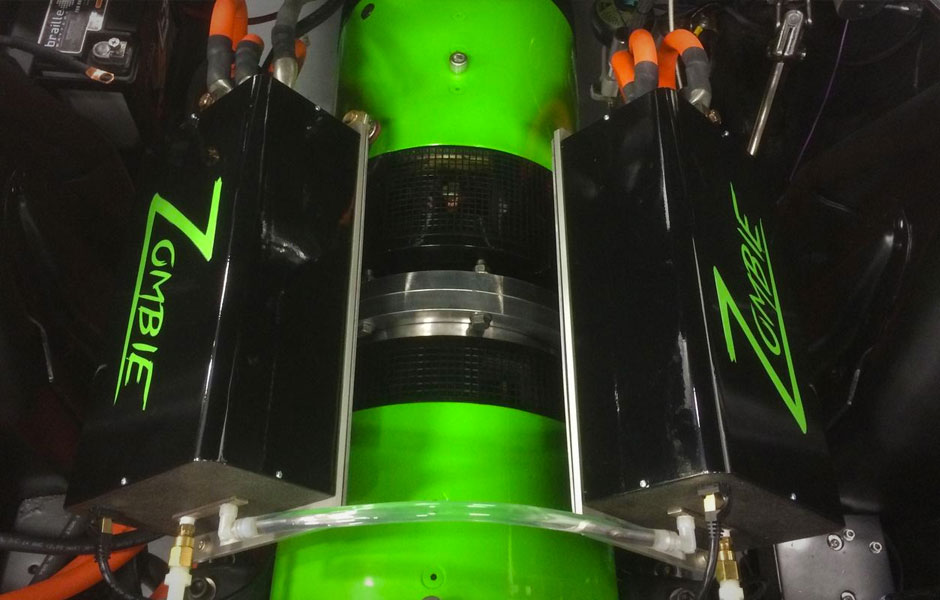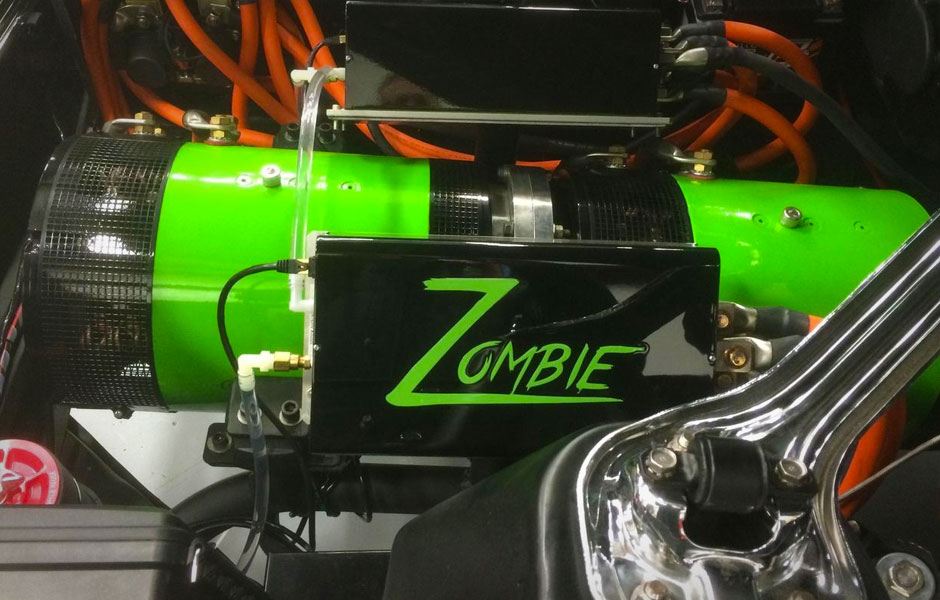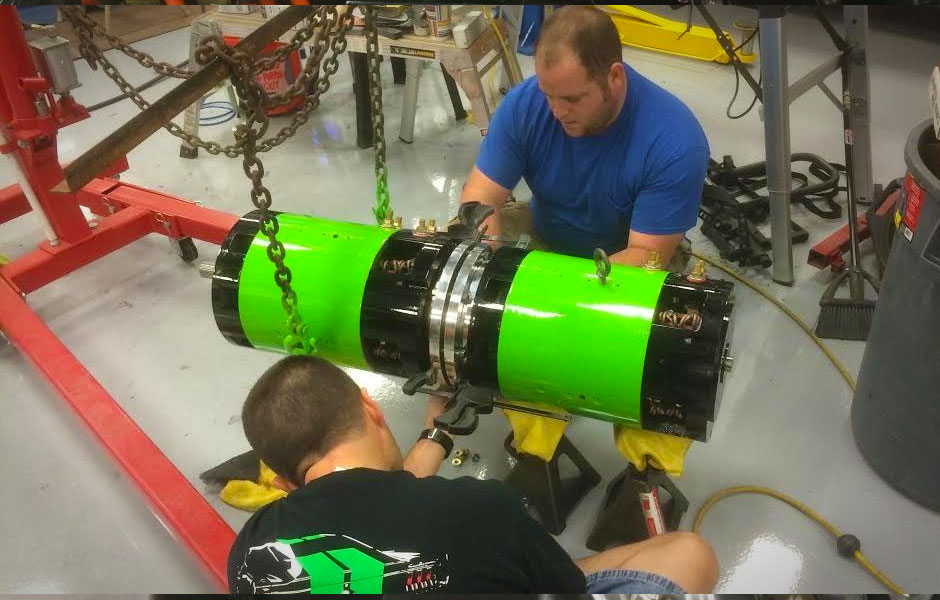A Texas-based enthusiast named Mitch Medford has teamed up with well-known electric drag racer John Wayland to build an all-electric 1968 Ford Mustang that’s capable of beating a top-spec Tesla Model S P85D on a drag strip.
Dubbed Zombie 222, Medford’s pony car looks like a mildly-modified Mustang fastback from a distance but a quick peek under the hood reveals it’s anything but. The stock 289-cubic-inch V8 engine has been tossed out and replaced with a pair of electric motors rated at a total of 440 volts, linked to a high-capacity battery pack designed specifically for the track.
The drivetrain sends over 800 horsepower and 1,800 foot-pounds of instant torque to the rear wheels, enough to rocket the Mustang from zero to 62 mph in just 1.94 seconds and on to a top speed of over 174 mph. To put those figures into perspective, the now-defunct W16-powered Bugatti Veyron performs the same task in roughly 2.5 seconds while the gasoline-electric Porsche 918 Spyder takes approximately 2.8 seconds. Medford jokes his pony car can “eat the brains of Ferraris, Lamborghinis, Maseratis and anything that sounds like a pasta dish from Italy.”
What’s arguably more surprising than the coupe’s performance figures is the fact that it has a full body, a full interior and it is fitted with regular glass windows. In other words, it’s not simply a bare-bones, stripped-out race car with a composite body designed to look like an old Mustang.
The story is a little different under the skin, though, where Medford’s team has installed a Blistein front suspension and 13-inch Brembo brakes all around in order to keep the insane amount of power in check.
The Mustang is fully street-legal — at least in Texas — and its driving range varies from 40 to 140 miles depending on how big of a battery pack it’s fitted with.
Medford has founded a company called Bloodshed Motors because he believes there’s a niche market for electric muscle cars and other classics. Going green isn’t cheap, however, and he has previously hinted that converting a vintage American car into a Ferrari-beating electric vehicle is expected to cost between $200,000 and $250,000. Thankfully, those figures include the price of the donor vehicle.
“Initially, we’ll supply the cars to convert, then later we’ll convert cars that our customers supply. We don’t want to start with rust buckets or reproduction bodies just because we don’t want to spend the time fixing rust or piecing the car together,” explained Medford in an earlier interview with enthusiast magazine Hemmings.
Those who can’t afford a Mustang with a six-digit price tag will need to be patient. If all goes according to plan, Medford will eventually sell all of the parts required for the conversion in kit form.
